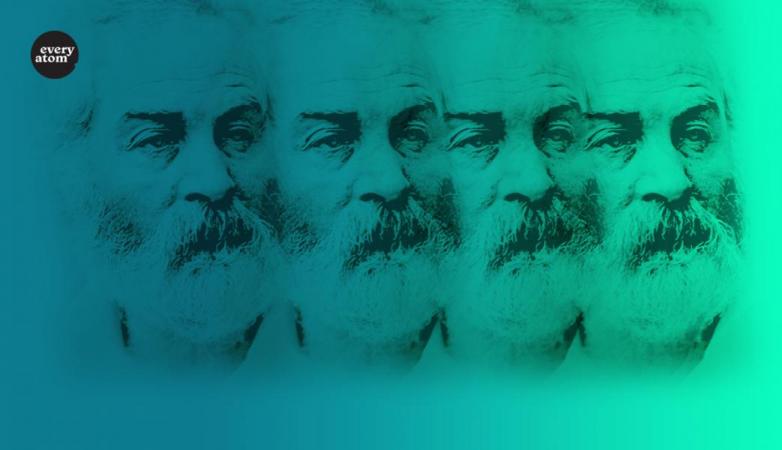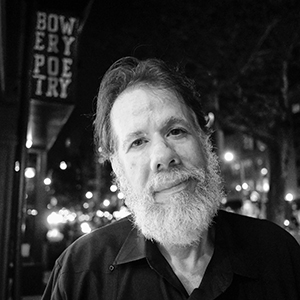Every Atom | No. 1
Introduction to Every Atom by Project Curator Brian Clements
Walt Whitman, an American, one of the roughs, a kosmos,
Disorderly, fleshy and sensual…eating, drinking and breeding,
John Marsh, in his book In Walt We Trust: How a Queer Socialist Poet Can Save America From Itself, has this to say about Walt Whitman and democracy:
For Whitman, democracy is a way of being; in particular, it is a way of being with others… It has much more to do with how you approach your fellow men and women. Do you respect them? Do you acknowledge their dignity? Do you identify your interest with theirs? In short, do you love them?
Whitman expressed his vision of democracy as “a way of being with others” in “Song of Myself”:
Walt Whitman, an American, one of the roughs, a kosmos,
Disorderly, fleshy and sensual…eating, drinking and breeding,
No sentimentalist... no stander above men and women or apart from them… no more modest than immodest.
Unscrew the locks from the doors!
Unscrew the doors themselves from their jambs!
Whoever degrades another degrades me ... and whatever is done or said returns at last to me
And whatever I do or say I also return.
Through me the afflatus surging and surging… through me the current and index.
I speak the password primeval… I give the sign of democracy;
By God! I will accept nothing which all cannot have their counterpart of on the same terms.
Through me many long dumb voices,
Voices of the interminable generations of slaves,
Voices of prostitutes and of deformed persons,
Voices of the diseas’d and despairing and of thieves and dwarfs,
Voices of cycles of preparation and accretion,
And of the threads that connect the stars—and of wombs and of the fatherstuff,
And of the rights of them the others are down upon,
Of the trivial and flat and foolish and despised,
Of fog in the air and beetles rolling balls of dung.
Through me forbidden voices,
Voices of sexes and lusts…voices veil’d, and I remove the veil,
Voices indecent by me clarified and transfigured.
Whitman gives the “sign of democracy”—and declares himself the advocate for those excluded from democracy’s embrace. Speaking for “the rights of them the others are down upon” is the poet’s way to electrify and illuminate American democracy with his egalitarian vision, the ideal of democracy as it could be and should be.
In so doing, Whitman confronts a history of silence, charging himself with the responsibility to “remove the veil.” If the alternative is silence, then the “long dumb voices” of the despised and the “forbidden voices” of the indecent must speak through him. The question, even now, is whether this country is ready for Whitman, open to his “way of being” when we need it most.
Whitman also declares his intention to radically alter our perceptions of the world and ourselves, to change our way of seeing and speaking. "Unscrew the locks from the doors! / Unscrew the doors themselves from their jambs!" he thunders. These are images of liberation in the broadest sense, metaphors for liberating the self. Significantly, this declaration follows immediately thereafter: “Whoever degrades another degrades me.” Here, the poet connects the internal struggle with the external struggle, implying that a revolution within the self—the raising of consciousness—is a prerequisite for, and inseparable from, changing society and, indeed, the world.
This is the essence of Whitman the visionary, the prophet of the new politics and the new poetics.
Recommended
Nor’easter
Post-Op Appointment With My Father
Cedar Valley Youth Poet Laureate | Fall 2024 Workshop







